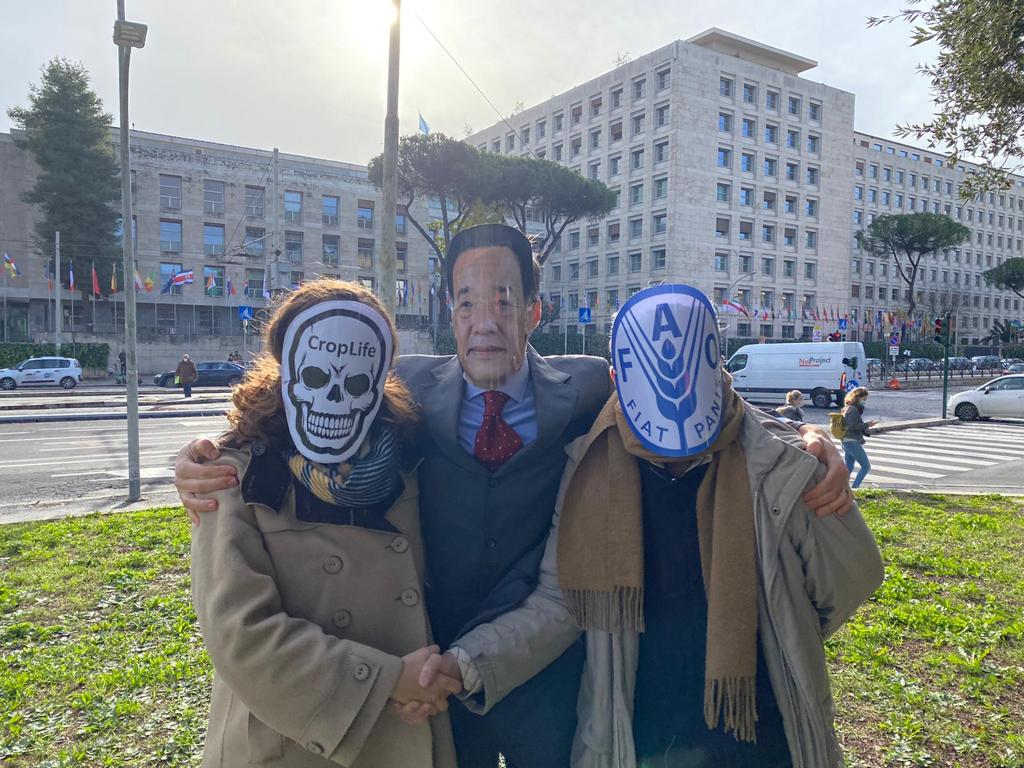PAN Asia Pacific (PANAP) fully supports the recommendations made by United Nations Special Rapporteurs (UNSR) during the 49th session of the UN Human Rights Council (UNHRC) in Geneva to end all uses of Highly Hazardous Pesticides, as well as the partnership between Food and Agriculture Organization (FAO) and the pesticide industry.
In his report to the UNHRC yesterday, the UNSR on the Right to Food Michael Fakhri expressed alarm at the strategic partnership agreement signed between CropLife International and FAO, saying that it “may raise questions of conflict of interest and result in undue corporate influence over international policymaking.” He encouraged the FAO Council to “review the agreement with CropLife International with an eye to human rights concerns and to consider directing the Director-General of FAO to rescind the agreement.”
Meanwhile, the UNSR on Human Rights and the Environment David Boyd expressed concerns about environmental injustices where the burden of contamination falls disproportionately upon the shoulders of marginalised communities. He recommended to “prohibit the export of toxic substances that are banned domestically,” noting that high-income States continue to “irresponsibly export hazardous materials such as pesticides” to the Global South. The Special Rapporteur also recommended for States to “eliminate all uses of highly hazardous pesticides.”
“We thank the Special Rapporteurs for these timely recommendations. Our call to ban Highly Hazardous Pesticides globally is anchored on respect for human rights to health and life, a clean environment, safe working conditions and adequate food for all. The continuing partnership between FAO and CropLife threatens to undermine efforts to ban HHPs and replace them with agroecological alternatives,” said Sarojeni Rengam, PANAP executive director.
In an intervention during an interactive dialogue with Fakhri, PAN and Center for International Environmental Law noted that a FAO partnership with CropLife is “inappropriate,” given that 44% of the global population working on farms are acutely poisoned by pesticides each year, and that CropLife member companies make over one-third of their sales from HHPs.
“Now that the FAO leadership is alerted by the Special Rapporteur to human rights concerns over its partnership with CropLife, we hope that it finally heeds the call of civil society and indigenous peoples to stay true to its mandate of reducing reliance on pesticides by rejecting closer ties with the pesticide industry. We also hope that this spurs decisive global action to ban Highly Hazardous Pesticides,” Rengam added.
Nearly 200,000 individuals and more than 350 civil society and indigenous peoples organizations have petitioned the FAO Director-General Dongyu Qu to sever formal ties with CropLife. Qu has yet to respond to a formal request by CSOs to meet with them to discuss their concerns over what they call the #ToxicAlliance.
PAN (Pesticide Action Network) is working for a global phase-out and ban of HHPs, and pushing for a legally binding governance mechanism on the lifecycle management of pesticides. ###








Discussion about this post